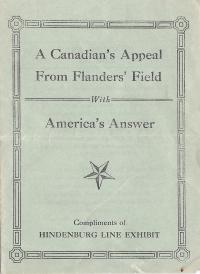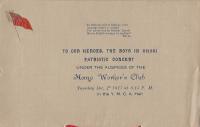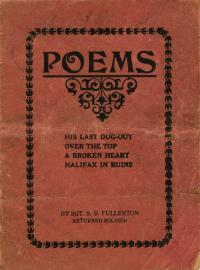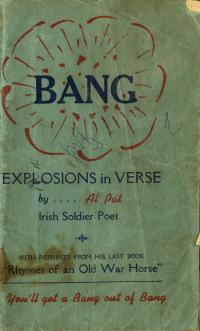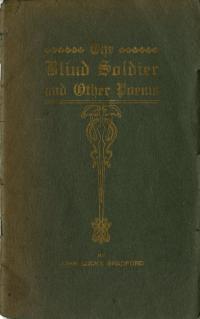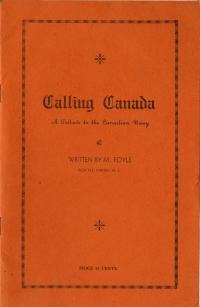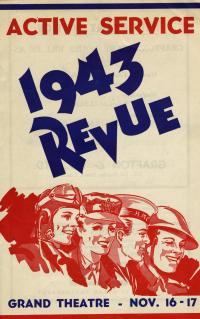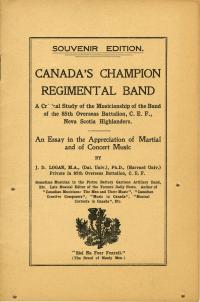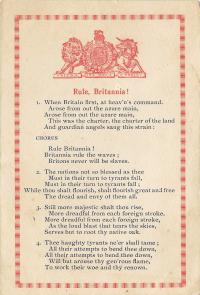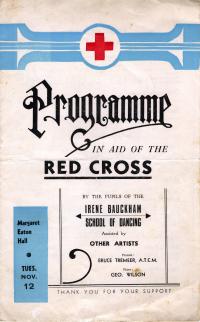Relaxing
America's Answer to "In Flanders Fields"
John McCrae's famous poem inspired countless responses, including this one by R.W. Lillard, reprinted in a leaflet distributed at an exhibition of captured war trophies in Philadelphia, Pennsylvania.
To our heroes, the boys in khaki
This concert, typical of wartime patriotic events, featured musical selections from local artists and one of the city's military bands and a lecture entitled "On land and sea, with our veterans."
A returned soldier - poet
Already nearly fifty years of age when he enlisted in the 193rd Battalion, Stanley Fullerton of Amherst, Nova Scotia, was plagued by ill health while in uniform and never got closer to the front than England.
The Irish Soldier Poet
Al Pat or "the Irish soldier poet" had served in the infantry in the First World War, and wrote about his experiences in a collection called "Rhymes of an Old War Horse." A sergeant in the Royal Canadian Air Force during the Second World War, he also published this volume of rough doggerel about life on various Canadian airfields.
A little known war poet
Nova Scotian John Bradford served as a conducting officer during the First World War, but his poetry turned to more unusual subjects, such as Armenian refugees and the story of a horse that was killed in action at the front.
"A fighting navy that holds our foe at bay"
At the end of the Second World War, this amateur poet from Nova Scotia published a verse tribute to the Royal Canadian Navy, and to its political chief, Angus L. Macdonald.
Entertainment in wartime
Four ensembles, the Originals, the London Life Troupers, the Tweedsmuir Revue, and the London Little Theatre, performed to entertain men and women in uniform and raise funds for the Citizens Auxiliary War Services Committee.
How to listen to a military band
University professor John Daniel Logan offered a critical appraisal of the brass band of the 85th Battalion, surely the only First World War military band to receive such scholarly attention.
Dominion Day in Ontario
This souvenir postcard included alternate Canadian lyrics to British standards, in honour of Canada's founding day.
"Thumbs Up! Beat Hitler"
Torontonians could support the Red Cross by attending this recital, and were also asked to patronize the businesses that supported the cause.

